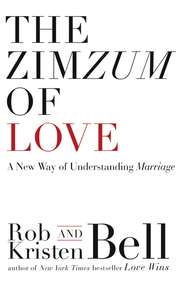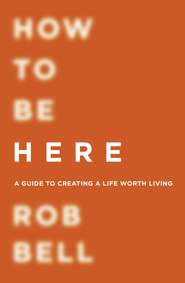По всем вопросам обращайтесь на: info@litportal.ru
(©) 2003-2024.
✖
Love Wins: At the Heart of Life’s Big Questions
Автор
Год написания книги
2019
Настройки чтения
Размер шрифта
Высота строк
Поля
So in the first story the centurion gives a speech about how authority works, in the second story the man praying asks for mercy, and in the third story the man asks to be remembered at a future date in time.
In the first case, Jesus isn’t just accepting and approving; he’s amazed.
And in the second case, he states that the man’s words put him in better standing with God than God’s own people.
And in the third case, the man is promised that later that very day he will be with Jesus in “paradise.”
So is it what you say that saves you?
But then in John 3 Jesus tells a man named Nicodemus that if he wants to see the “kingdom of God” he must be “born again.”
And in Luke 20, when Jesus is asked about the afterlife, he refers in his response to “those who are considered worthy of taking part in the age to come.”
So is it about being born again
or being considered worthy?
Is it what you say
or what you are that saves you?
But then, in Matthew 6, Jesus is teaching his disciples how to pray, and he says that if they forgive others, then God will forgive them, and if they don’t forgive others, then God won’t forgive them.
Then in Matthew 7 Jesus explains, “Not everyone who says to me, ‘Lord, Lord,’ will enter the kingdom, but only those who do the will of my Father.”
And then in Matthew 10 he teaches that “those who stand firm till the end will be saved.”
So do we have to forgive others, do the will of the Father, or “stand firm” to be accepted by God?
Which is it?
Is it what we say,
or what we are,
or who we forgive,
or whether we do the will of God,
or if we “stand firm” or not?
But then in Luke 19, a man named Zacchaeus tells Jesus, “Here and now I give half of my possessions to the poor, and if I have cheated anybody out of anything, I will pay back four times the amount.”
Jesus’s response? “Today salvation has come to this house.”
So is it what we say,
or is it who we are,
or is it what we do,
or is it what we say we’re going to do?
And then in Mark 2, Jesus is teaching in a house and some men cut a hole in the roof and lower down their sick friend for Jesus to heal. When Jesus sees their faith, he says to the paralyzed man, “Son, your sins are forgiven.”
His sins are forgiven because of their faith?
Is it what you say,
or who you are,
or what you do,
or what you say you’re going to do,
or is it who your friends are or what your friends do?
But then in 1 Corinthians 7 it’s written: “How do you know, wife, whether you will save your husband? Or, how do you know, husband, whether you will save your wife?” And then Paul writes in his first letter to Timothy that women “will be saved through childbearing” (chap. 2).
So is it what you say,
or who you are,
or what you do,
or what you say you’re going to do,
or who your friends are,
or who you’re married to,
or whether you give birth to children?
These questions bring us to one of the first “conversion” stories of the early church. We read in Acts 22 about a man named Saul (later, Paul) who is traveling to the city of Damascus to persecute Christians when he hears a voice ask him, “Why do you persecute me?”
He responds, “Who are you, Lord?”
The voice then replies: “I am Jesus of Nazareth, whom you are persecuting. . . . Get up and go into Damascus, and there you will be told all that you have been assigned to do.”
That’s his “conversion” experience?
Paul is asked a question.
Paul then asks a question in response to the question he’s just been asked.
He’s then told it’s Jesus and he should go into the city and he’ll know what to do.
Is it what you say,











